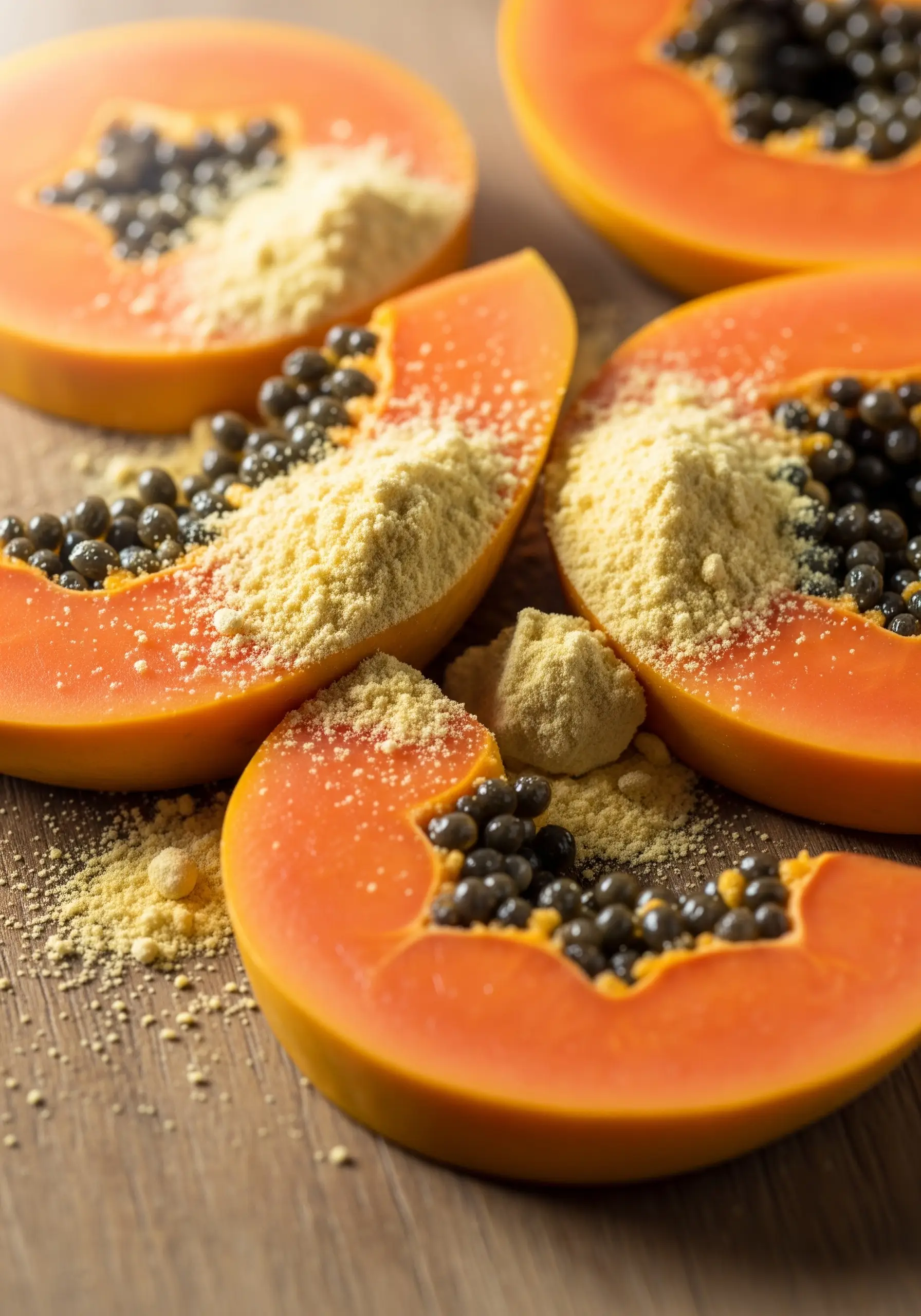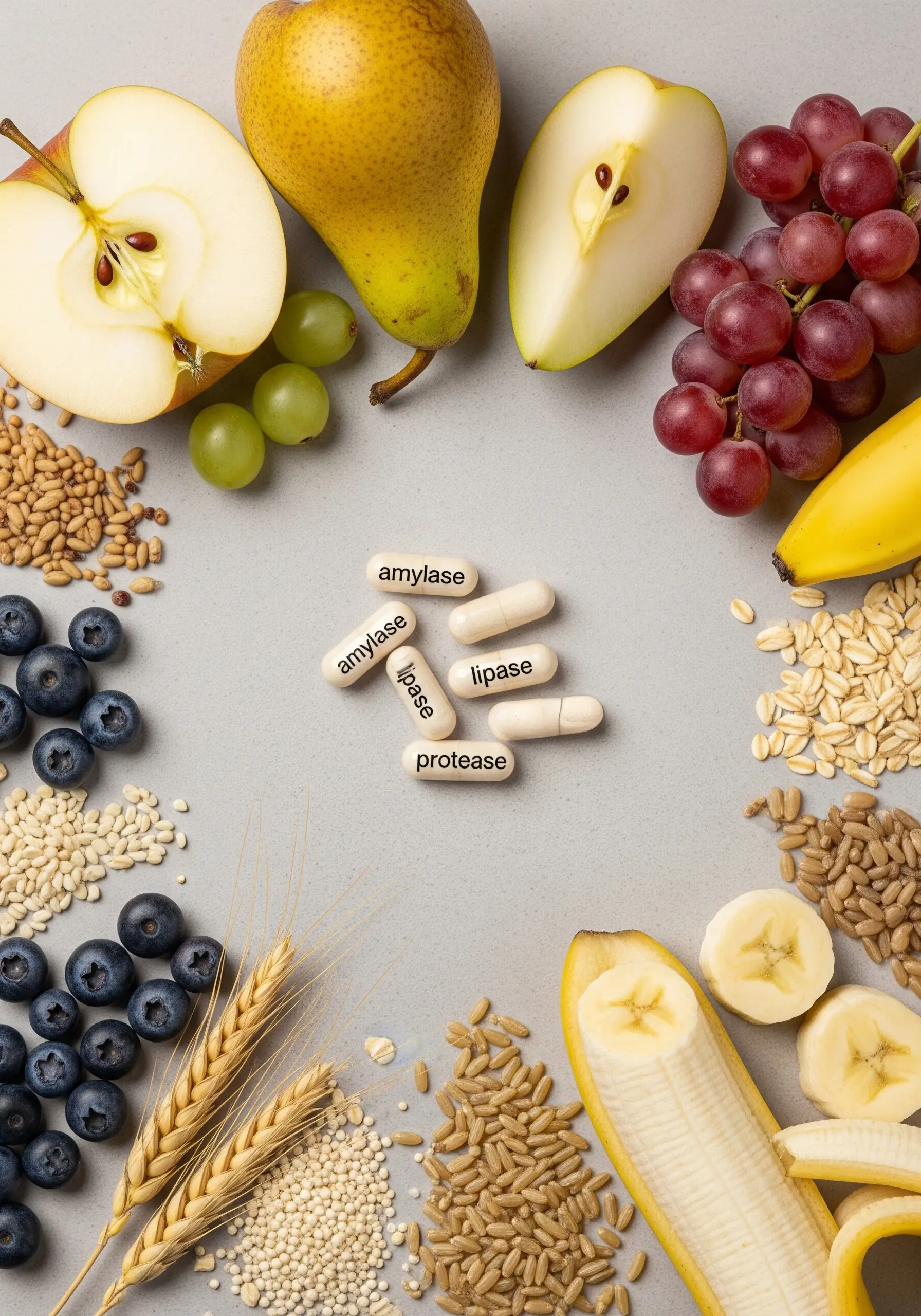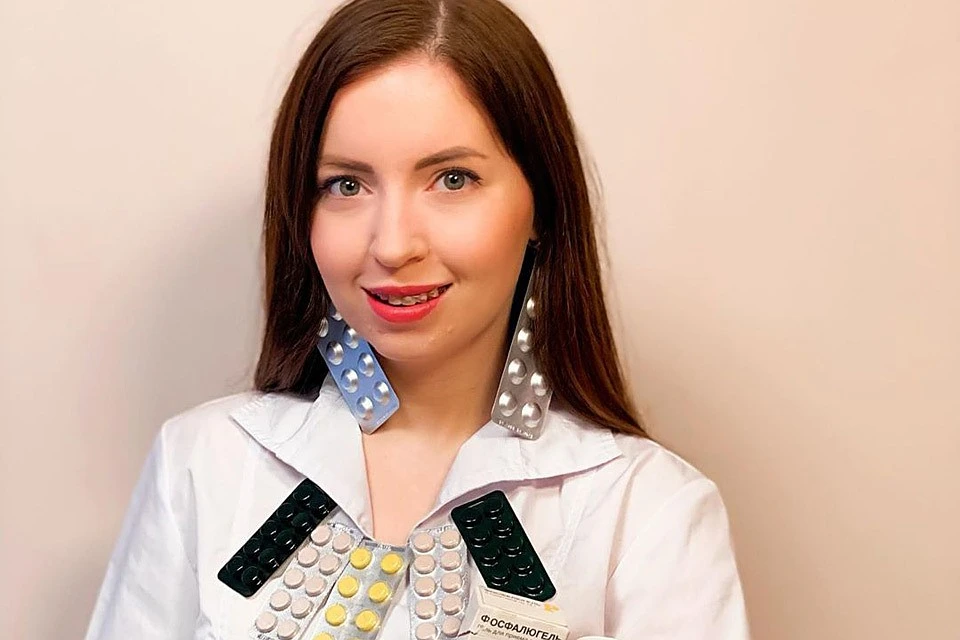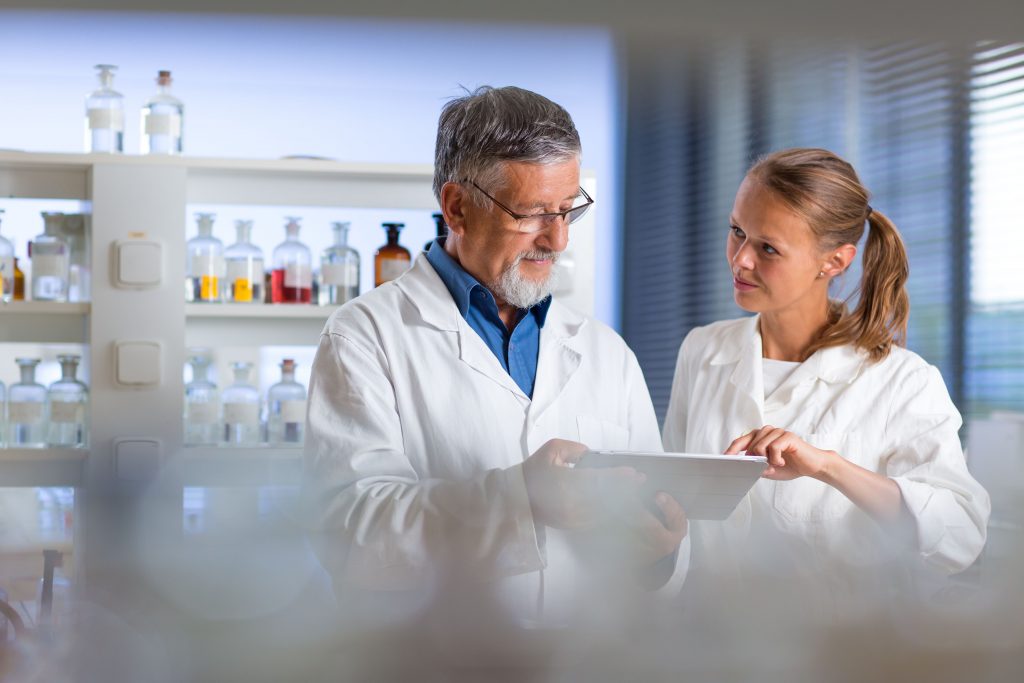

In autumn, especially from November, our diet becomes heavier: more meat, grains, fatty and hot dishes. The body responds with a slowdown in gastric juice secretion, and the liver and pancreas receive double the workload.
That is why digestive enzymes are not just “post-holiday pills,” but a scientifically proven way to support digestive physiology during seasonal adaptation.

Enzymes are protein molecules that catalyze the breakdown of food into simple compounds. Their deficiency leads to bloating, heaviness, lack of energy, and even inflammatory reactions in the gut.
Main Types of Digestive Enzymes
| Enzyme | Breaks down | Natural source |
|---|---|---|
| Amylase | Starch, carbohydrates | Saliva, pancreas |
| Lipase | Fats, triglycerides | Pancreas, fermented foods |
| Protease (pepsin, trypsin) | Proteins | Stomach, enzyme complexes |
| Lactase | Lactose (milk sugar) | Intestinal epithelium |
| Bromelain / Papain | Proteins, collagen, gluten | Pineapple, papaya |
When the body cools down, enzyme activity decreases — this has been proven in studies by Harvard School of Public Health, 2023: a 1°C drop in body temperature reduces lipase activity by 8–10%.

Therefore, in cold seasons, maintaining enzyme balance is important not only for digestion but also for energy metabolism.
Table: Indications for additional enzyme intake
| Symptom or condition | Probable cause | Recommended enzyme complex |
|---|---|---|
| Heaviness after eating, bloating | Pancreatic hyposecretion | Amylase + Lipase + Protease |
| Milk intolerance | Lactase deficiency | Single-component Lactase |
| After antibiotics / overeating | Dysbiosis + enzyme deficiency | Combined complex with bromelain |
| Feeling tired after eating | Slow fat digestion | Lipase + Betaine HCl |

How Enzymes Work
Enzymes do more than break down food — they reduce inflammation of the intestinal lining, lower gut wall permeability (leaky gut), and prevent excessive fermentation that causes gas formation.
Combinations with bromelain and papain also act as systemic anti-inflammatory agents — they modulate IL-6 and TNF-α cytokines, as shown in the study PLOS One, 2024.
FAQ About Enzymes
1. When should enzymes be taken — before or after meals?
Optimal — 5–10 minutes before a meal or at the start of eating. For systemic effects (reducing inflammation) — on an empty stomach.
2. Can enzymes be taken continuously?
Yes, but in courses of 3–4 weeks with breaks. Continuous use — only for proven exocrine insufficiency.
3. Are enzymes compatible with probiotics?
Yes, enzymes even improve colonization of probiotic bacteria, reducing excessive fermentation.
4. Are plant enzymes (bromelain, papain) safe?
Yes, they do not affect stomach acidity and do not cause dependency.
5. How to know if enzymes are working?
Within a few days, bloating and heaviness disappear, and energy after meals increases.
Conclusions
Enzyme support in autumn is not a trend, but a rational physiological strategy that helps the body adapt to seasonal metabolic slowdown.
A regular short course of enzymes is a simple way to maintain digestive ease, prevent discomfort, and support the microbiome during periods of heavy eating.
References
-
Tran, L. M. et al. PLOS One, 2024 — “Enzyme supplementation in pancreatic insufficiency and dysbiosis.”
-
Ghosh, S. et al. Frontiers in Nutrition, 2023 — “Impact of digestive enzymes on metabolic efficiency.”
-
Park, J. Y. Nutrients, 2024 — “Bromelain as systemic anti-inflammatory enzyme.”
-
Harvard HSPH Report, 2023 — “Temperature-dependent enzyme kinetics in human digestion.”
-
Kaur, A. Clinical Gastroenterology, 2025 — “Lactase enzyme supplementation and gut health outcomes.”




